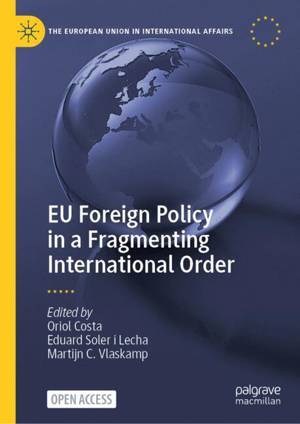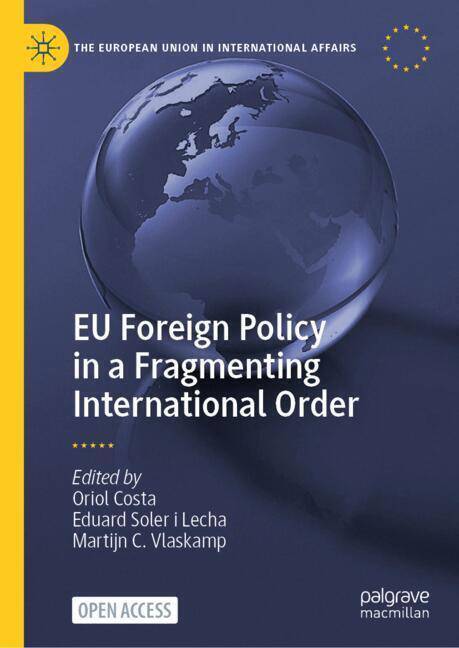
- Afhalen na 1 uur in een winkel met voorraad
- Gratis thuislevering in België vanaf € 30
- Ruim aanbod met 7 miljoen producten
- Afhalen na 1 uur in een winkel met voorraad
- Gratis thuislevering in België vanaf € 30
- Ruim aanbod met 7 miljoen producten
EU Foreign Policy in a Fragmenting International Order
Omschrijving
This open access book delves into the responses of EU actors, such as member states, institutions, and political groups in the European Parliament, to the fragmentation of the liberal international order (LIO). The analytical framework adopted in this volume explores the diverse interpretations of this phenomenon and the various political initiatives associated with them. Among these interpretations is the concept of strategic autonomy, which has emerged as a key feature of debates surrounding the EU's adaptation to a fragmented LIO. The contributors examine these dynamics across different issue areas and dimensions of EU foreign policy, encompassing the Common Foreign and Security Policy (CFSP), external relations, and the externalization of internal policies. They use the term fragmentation to refer to a bundle of processes affecting the LIO that range from challenges to the universality of human rights to the crisis of global governance instruments, from the bifurcation of tech to protectionist tendencies in trade policies.
Specificaties
Betrokkenen
- Uitgeverij:
Inhoud
- Aantal bladzijden:
- 292
- Taal:
- Engels
- Reeks:
Eigenschappen
- Productcode (EAN):
- 9783031640599
- Verschijningsdatum:
- 14/11/2024
- Uitvoering:
- Hardcover
- Formaat:
- Genaaid
- Afmetingen:
- 148 mm x 210 mm
- Gewicht:
- 517 g

Alleen bij Standaard Boekhandel
Beoordelingen
We publiceren alleen reviews die voldoen aan de voorwaarden voor reviews. Bekijk onze voorwaarden voor reviews.







